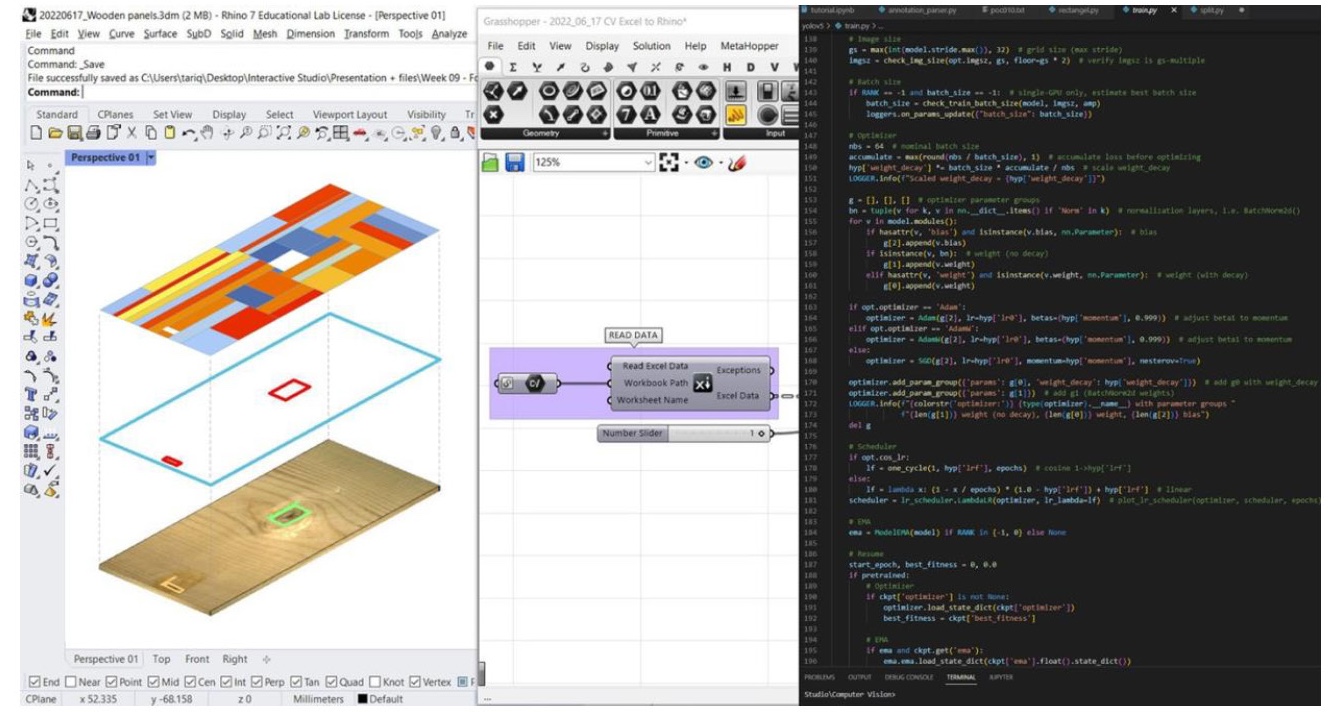Projects
- ArchiSpace: Space architecture in analogue environments
- Robotic Terrain Mapping
- Discretized and Circular Design
- CV- and HRI-supported Planting
- Lunar Architecture and Infrastructure
- Robotic Drawing
- Rhizome 2.0: Scaling-up of Rhizome 1.0
- Rietveld Chair Reinvented
- Cyber-physical Furniture
- Rhizome 1.0: Rhizomatic off-Earth Habitat
- D2RP for Bio-Cyber-Physical Planetoids
- Circular Wood for the Neighborhood
- Computer Vision and Human-Robot Interaction for D2RA
- Cyber-physical Architecture
- Hybrid Componentiality
- 100 Years Bauhaus Pavilion
- Variable Stiffness
- Scalable Porosity
- Robotically Driven Construction of Buildings
- Kite-powered Design-to-Robotic-Production
- Robotic(s in) Architecture
- F2F Continuum and E-Archidoct
- Space-Customizer
Discretized and Circular Design
Year: 2024-28
Project leader: Henriette Bier
Project team: HHenriette Bier, Peng Lee, Fang-Che Cheng, Arwin Hidding, Vera Laszlo, and HPM students (TU Delft); Ningzu Wang (RMIT)
Collaborators / Supervisors / Partners: Paul Vermeulen (TU Delft), Mario Rinke (U Antwerp), and Alisa Andrasek (RMIT)
Funding: 600K
Dissemination: HRI4PCA
While discretized design focuses on breaking down larger systems into components, circular design is concerned with the sustainable and responsible use of materials and resources throughout the entire lifecycle of a product. The two approaches often complement each other in creating sustainable designs. In this context, the project explores the availability of various materials and identifies opportunities for use and reuse. Evidence from preceding projects in the reuse of wood shows that computational design and fabrication enables turning waste into meaningful circular products, and facilitates the fabrication of unique prototypes and full-scale applications, which become tangible demonstrations of sustainable and circular approaches in architecture.
The project, however, extends beyond the use and reuse of wood. It explores various materials, components, and assemblies as well as advances computational design and fabrication techniques that facilitate the implementation of sustainable and circular approaches in Architecture and Building Construction (ABC). Considering that the construction sector accounts for about 40% of material-, energy- and process-related carbon dioxide (CO2) emissions, which can be reduced by introducing data-driven sustainable and circular approaches the project aims to contribute through increased material-, process-, and energy-efficiency.
